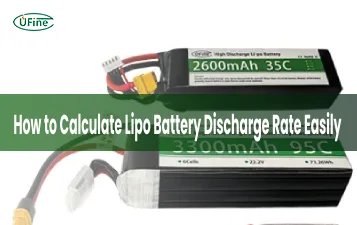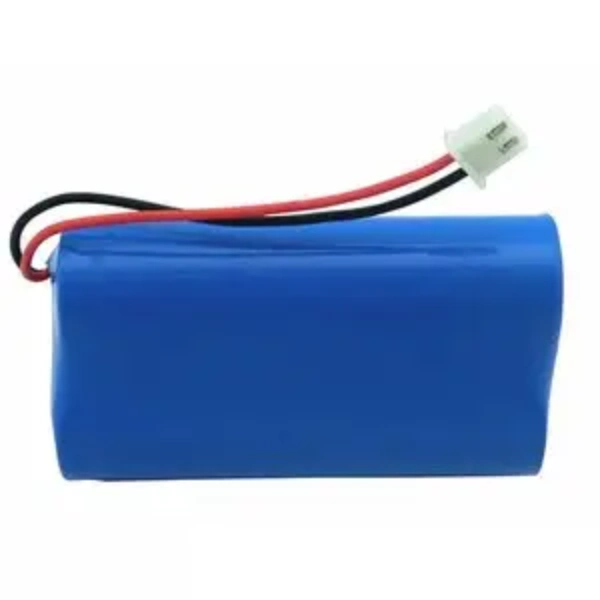It is impossible to overstate how crucial efficient battery charging is in the fast-paced world we live in today, where portable electronics have become a need. The lithium-ion battery is one of the most widely used rechargeable batteries. With its extended lifespan and great energy density, the lithium-ion battery has completely changed how we power our electronics. This extensive tutorial will examine common misconceptions, best practices, and strategies to optimize battery performance as we delve into the details of charging lithium-ion batteries. Now that you have your preferred gadget take a seat, and let’s explore the world of lithium-ion battery charging.
Part 1.Gaining knowledge of lithium-ion batteries
Rechargeable power sources like lithium-ion batteries are quite popular because of their lightweight and high energy density. Lithium ions in these batteries travel back and forth between two electrodes when charged and discharged. Graphite is often used for the negative electrode or anode, and lithium cobalt oxide is used for the positive electrode or cathode. Lithium ions can travel because the electrolyte is a non-aqueous solution.
Part 2. Elements impacting the efficiency of batteries
Lithium-ion battery performance and lifespan can be affected by several things. It is essential to comprehend these elements to maximize the charging process and guarantee the longevity of your battery. Let’s examine a few crucial elements:
1.The temperature
Battery performance is significantly impacted by temperature. The capacity and general lifespan of the battery might be adversely affected by extreme temperatures, both hot and cold. For best results, lithium-ion batteries should be charged at a temperature between 0°C and 45°C.
2. Recharge periods
There is a limit to how many times lithium-ion batteries may be charged before experiencing capacity degradation. The process of charging a battery from 0% to 100% and then letting it discharge back to 0% is known as a charging cycle. To extend the battery’s life, it is best to strive for shallow discharge cycles rather than deep discharge cycles regularly.
3. Excessive charging and discharge
A lithium-ion battery that has been overcharged may overheat, lose capacity, or possibly present safety risks. Similarly, irreparable harm may result from over-discharging the battery below the recommended voltage. It is imperative to utilize chargers and gadgets with integrated safety features to avoid overcharging and over discharging.
Part 3. Optimal procedures for charging lithium-ion batteries
Adhering to a few best practices when charging your lithium-ion battery is critical to guarantee maximum performance and longevity. Let’s investigate these methods:
Ensuring safe and effective charging requires using the charger recommended by the manufacturer. Different lithium-ion batteries’ voltage and current requirements might vary; therefore, using an unsuitable charger can result in less-than-ideal charging and possibly even damage to the battery.
2. Steer clear of rapid charging
Fast charging could appear convenient, but over time, it might cause the battery to get overheated and stressed, lowering its capacity. To maintain the battery’s health, choose normal charging whenever possible or utilize fast charging only when necessary.
3. Charge in an area with good ventilation
Heat may be produced by lithium-ion batteries when they are charging. Charge it in a place with good ventilation to help dissipate this heat and keep the battery from overheating. Refrain from charging near combustible objects or in enclosed areas.
4. After complete charge, unplug
After your gadget reaches 100% charge, leaving it plugged in can cause undue strain on the battery. To avoid overcharging, it is best to unplug the charger as soon as the battery is fully charged.
Part 4. Frequently held myths regarding battery charging
Lithium-ion battery charging is often misunderstood, which might result in less-than-ideal procedures. Let’s dispel a few of these rumors:
1. Recollection impact
Unlike other battery technologies, lithium-ion batteries do not experience the memory effect. The term “memory effect” describes the reduction in battery capacity brought on by partial cycles of depletion and recharging. You can charge lithium-ion batteries whenever you want without worrying about the memory effect.
2. Maintaining a 100% Charged Battery
Unlike what many people think, prolonged use of a fully charged lithium-ion battery can reduce its capacity. For long-term storage, it is advised to maintain the battery charged between 20% and 80% to reduce capacity degradation.
3. Fully Draining the Battery
It’s crucial to avoid deep discharge cycles regularly, but it’s also crucial to avoid draining the battery. Maintaining lithium-ion batteries within a specific charge range optimizes their performance. Allowing the battery to discharge to an excessively low point may cause damage that cannot be repaired.
Part 5. Methods for increasing battery life
To extend the life and enhance the functionality of your lithium-ion battery, think about putting the following advice into practice:
- Keep the battery away from extremely hot or cold temperatures.
- Make sure the battery is charged within the suggested range.
- To save battery life, use power-saving modes and adjust device settings.
- Close any background programs and processes that are consuming too much battery life.
- Update the software on your device often to take advantage of the improvements in battery optimization.
Part 6. FAQs
-
Can I charge my lithium-ion battery with any kind of charger?
It is advised to use the charger that came with your lithium-ion battery or one made especially for it. Incompatible chargers may result in inadequate charging and possible battery damage. -
Is leaving my smartphone charging overnight safe?
Although most contemporary devices come with built-in safeguards against overcharging, disconnecting your gadget as soon as it’s fully charged to avoid putting undue strain on the battery is usually a good idea. -
How frequently must my lithium-ion battery be charged?
There is no set charge timetable for lithium-ion batteries. The batteries can be charged whenever it is convenient for you, and to extend the battery’s life, shallow discharge cycles are preferred over deep ones. -
Can I use my car to charge my lithium-ion battery?
Using a car charger made especially for your device, you can charge your lithium-ion battery in your car. But it’s crucial to ensure the vehicle charger delivers the right voltage and current for your battery. -
What are some ways to make my smartphone’s battery last longer?
You may employ several techniques to increase the lifespan of your smartphone’s battery, including lowering the brightness of the screen, turning off useless features and alerts, switching to Wi-Fi whenever available rather than cellular data, and shutting down unused apps.
Related Tags:
More Articles

LiPo Battery Discharge Rate Guide & Calculation Tips
Understand LiPo battery discharge rates, C-ratings, and how to calculate max current. Essential guide for RC, drones, and electronics users.
High‑Capacity 3S LiPo Batteries: 5000 mAh vs. 10000 mAh
Compare 3S LiPo 5000mAh vs 10000mAh batteries by weight, power, and use. Find the best fit for your drone, RC car, or boat setup.
Top 5 Applications for Small 3S LiPo Batteries
Small 3S LiPo batteries power drones, RC gear, wearables, and robotics with high energy and low weight. Making them ideal for compact electronics projects.
Building and Charging Your Own 3S LiPo Pack: A Step‑by‑Step Guide
Learn how to build, balance, and charge a 3S LiPo battery pack safely at home with this complete DIY guide for hobbyists and beginners.
How to Choose the Right LiPo Battery Plug Type?
Discover the best LiPo battery plug types, how to choose them, and expert tips for safe usage, soldering, and maintenance.




